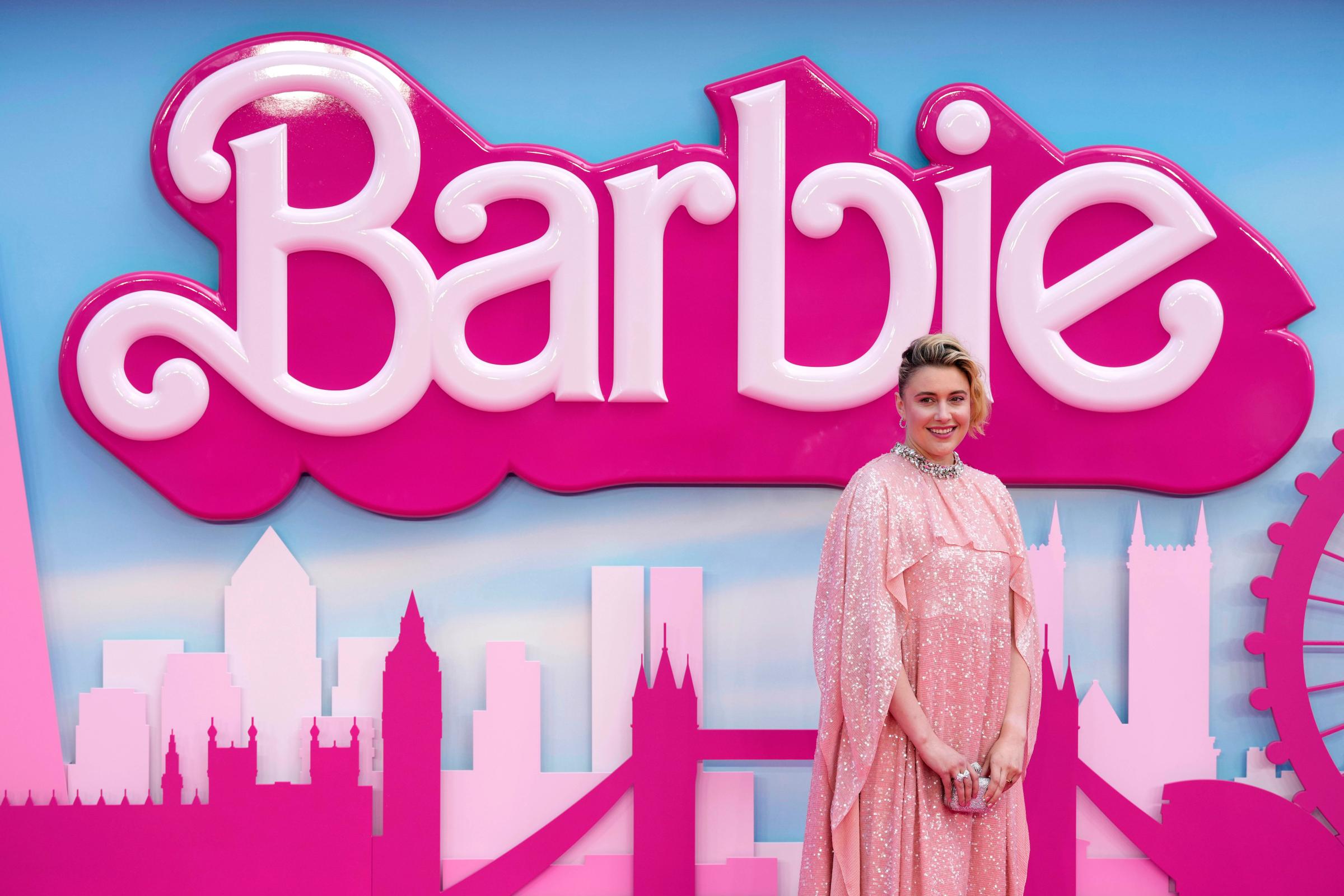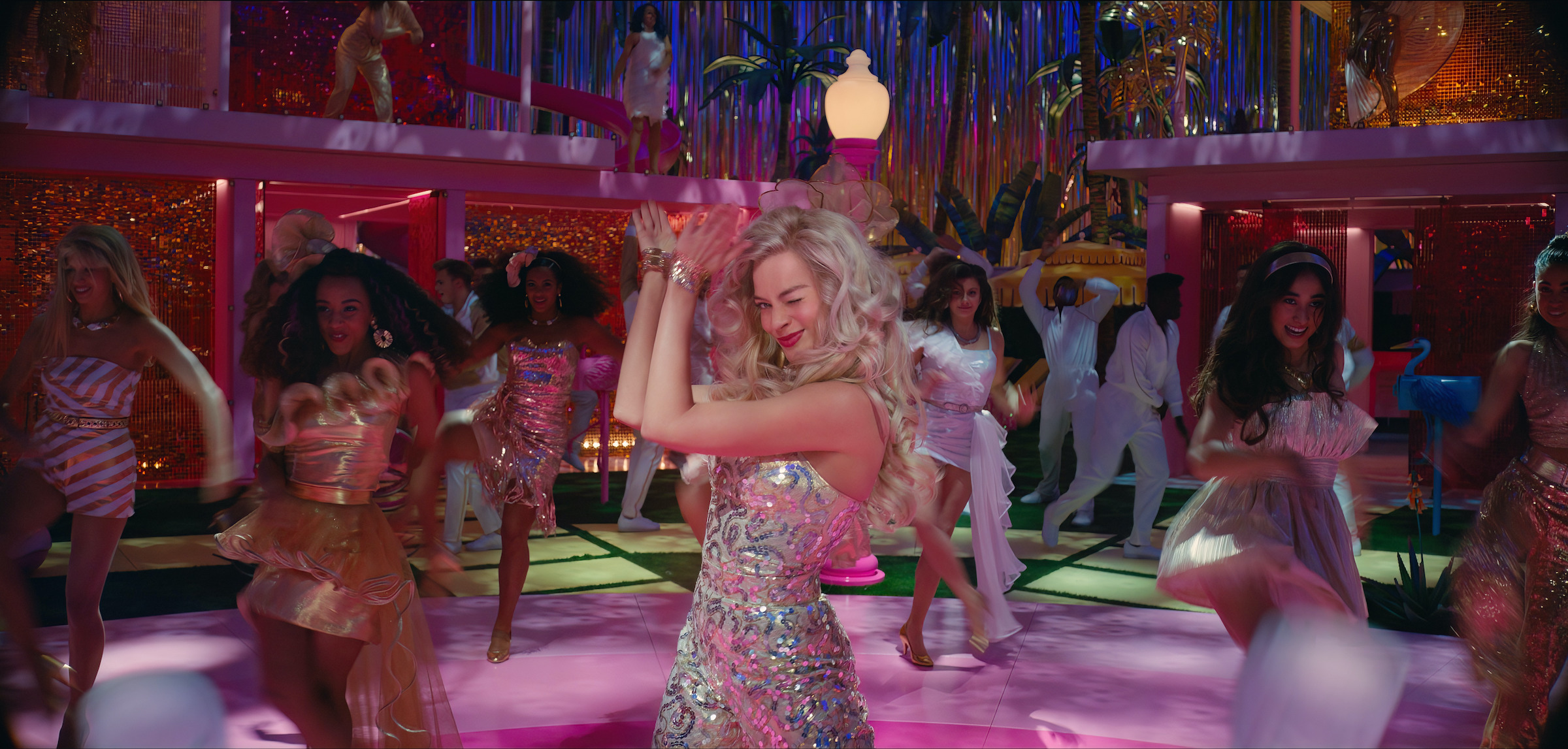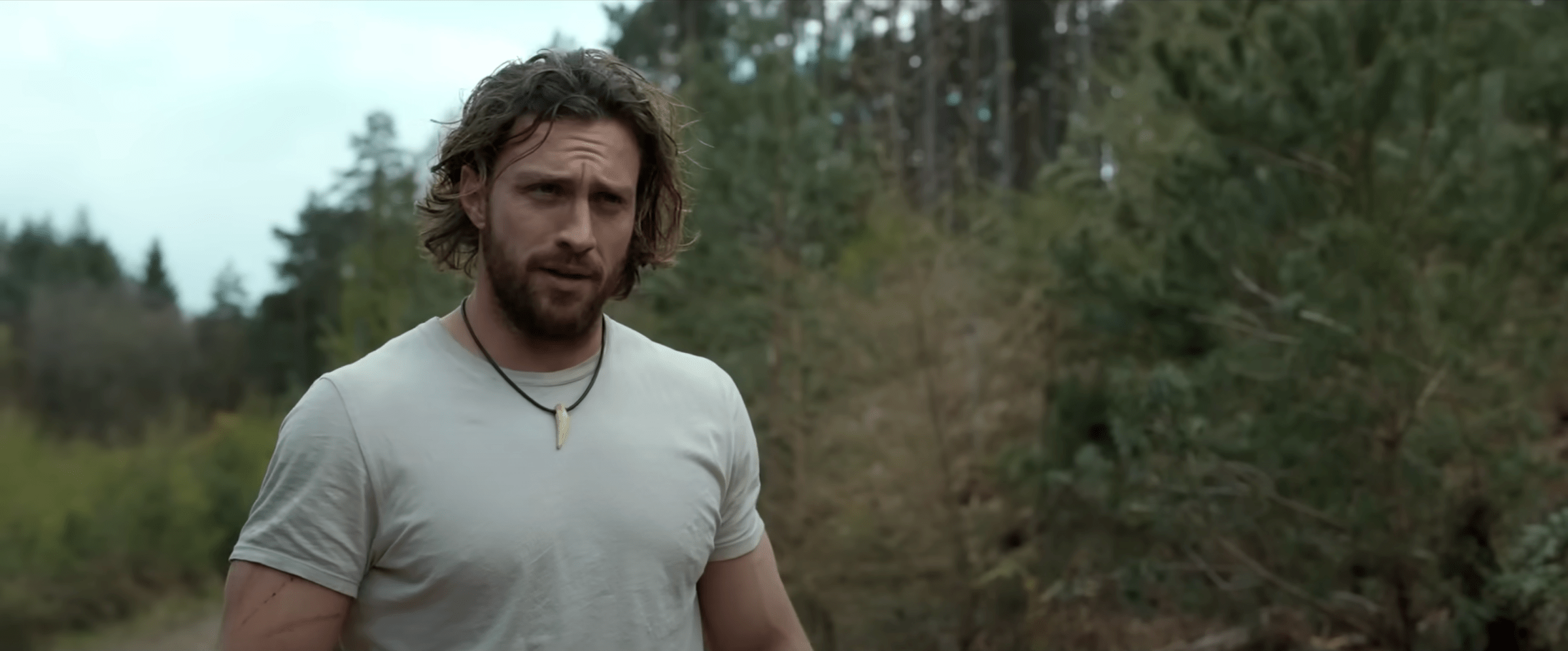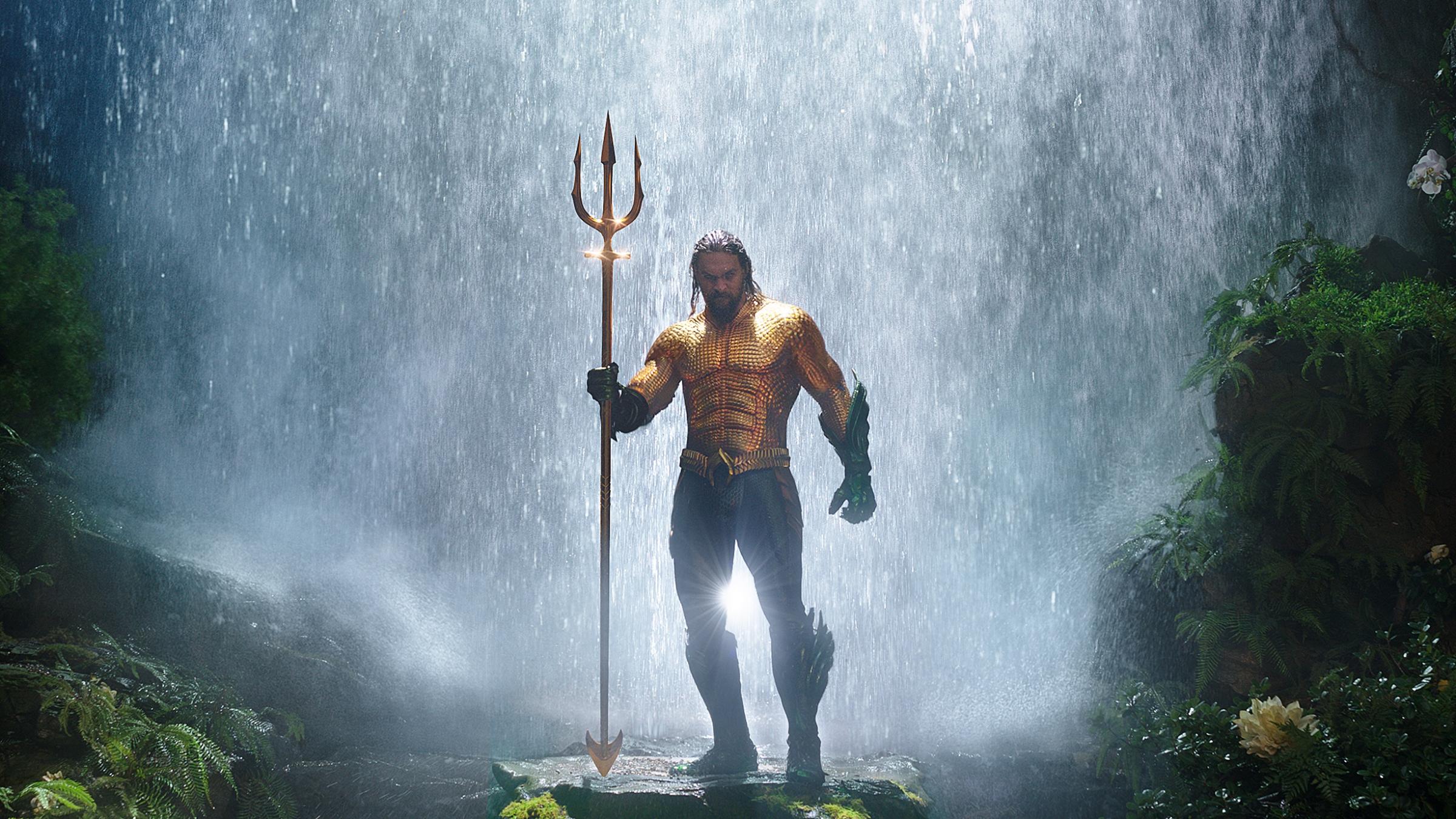Barbie is on top of the world. Every week since its release on July 21, it's broken a record: The year's biggest opening weekend; the largest opening for a female director ever; Warner Bros.' highest grossing domestic release in history, surpassing Christopher Nolan's The Dark Knight. But now, it's breaking a big one: Barbie has become the highest-growing movie of 2023 reaching $575.4 million domestically this week, according to Variety. It has already grossed $1.3 billion globally and will soon surpass Super Mario Bros. in its worldwide gross as well.
It's a big number for any film, but it's especially significant for Barbie. When I wrote a cover story about the film earlier this year, box office prognosticators initially predicted the movie would make $55 million its opening weekend. It nearly tripled that estimate with a $162 million haul in just those first few days after release. It's also the first time Warner Bros. has managed to snag the title of biggest release of the year since Harry Potter and the Deathly Hallows: Part II.
Will Barbie be topped this year? Probably not. Here's why and what it may mean for the future of Hollywood movies.
Read More: Our Cover Story on Barbie
Barbie is Greta Gerwig's unique vision—which means its success isn't easily replicable

Unfortunately, Hollywood tends to take away the wrong lessons from the success of idiosyncratic films. After The Dark Knight became a blockbuster, Hollywood decided that gritty was always good—even if it didn't fit the material (think: Snow White and the Huntsman, the body horror Fantastic Four movie, and Zack Snyder's dark take on Superman, comics' most hopeful superhero). Avatar's history-making numbers spawned a trend of films rendered in 3D for no particular reason. And the success of the Marvel Cinematic Universe spawned dozens of imitation cinematic universes, like Universal's failed "Dark Universe" that ended as quickly as it began after Tom Cruise's (gritty) The Mummy remake bombed.
In this instance, the same logic would follow: a toy movie performed well, so toy movies will inevitably proliferate. Mattel executives told me that they had already planned to build the brand's own cinematic universe long before Barbie was ever released, but now other studios are rushing to turn toys into films: Hasbro launched a new entertainment division in August.
Read More: Why It Took 64 Years to Make a Barbie Movie
It's difficult to imagine any other movie based on a toy ever reaching Barbie's heights. Barbie is an icon. She has name recognition across the world equal to Mickey Mouse and Coca-Cola. And, sure, Hot Wheels may be popular, but won't a Hot Wheels movie just be a racing movie, even if J.J. Abrams is at the helm as executive producer?
Mattel certainly isn't shying away from taking risks: I'm particularly interested in Daniel Kaluuya's involvement with what sounds like a very meta Barney movie (as in, yes, the big purple dinosaur); whether Lena Dunham can find a quirky take on Polly Pocket; and if a Magic 8 Ball horror movie can actually prove to be scary. And yet just about every girl in the world has played with Barbie at some point and has (often complex) feelings about her. I could be wrong, but I don't think many people have strong feelings about the Magic 8 Ball.
Beyond Mattel's film division, other studios are looking for major takeaways. One obvious one, that I've argued before: Make movies for women, and audiences will come! Barbie leans heavily into femininity—the assault of pink has been relentless, and yet people seem to have not tired of it. In a recent Rolling Stone interview, Randall Park hit the nail on the head: "I feel like, just in general, this industry is taking the wrong lessons. For example, Barbie is this massive blockbuster, and the idea is: Make more movies about toys! No. Make more movies by and about women!"
I fear that even if studios heed Park's advice, in the short-term that will mean Disney hyping up the fact that The Marvels is a female-fronted superhero film, even though superhero movies have traditionally catered to a young male audience, regardless of who stars in them. Or studios might paint a sheen of pink on other films without stuffing the stories without Gerwig's complex considerations about male fragility, female frustrations, and whether we can reach a state of equity.
Read More: We're Ignoring the Real Reason Barbie Might Dominate the Box Office
Gerwig happened to make two masterpieces before Barbie about the complex interiority of women: Lady Bird and Little Women. She found a way to pack considerations she has already articulated beautifully in those films into a blockbuster movie, a feat pulled off by a select few artists. (Ryan Coogler's interrogation of race in the context of an increasingly globalized world in Black Panther and James Cameron's blunt but effective advocacy for saving our dying planet in the Avatar films come to mind.) It's easy to make a blockbuster. It's hard to make a thoughtful one.
Perhaps most depressing for theater owners: Gerwig's next project is a series of Narnia movies...for streamer Netflix.
Barbie was able to pull millions of moviegoers to theaters because it was fun

Barbie was special. Credit the Warner Bros. and Mattel marketing teams that partnered with seemingly every clothing line, decor company, and makeup brand on earth to turn our social media timelines pink.
Read More:Every Single Barbie Partnership That We Could Find
Or praise director Greta Gerwig, who could have made a toy commercial and instead stuffed a fun summer romp with meditations on God and feminism and Sylvester Stallone's bizarre wardrobe.
Or acknowledge that TikTok played a massive role in turning a rivalry between two movies that could not be more different into the Barbenheimer phenomenon that made moviegoing fun again. Think about how many people spent more than five hours in a movie theater—sometimes in the same day—over the course of a hot summer weekend.
In short, Barbie was fun. And we were all in desperate need of fun. Barbie simply had to be experienced in a theater, ideally with friends, and definitely with a flock of other pink-clad moviegoers.
Read More: Why Barbenheimer Mania Is Unstoppable
Barbie pulled people back to theaters just when cinemas needed audiences most. Nearly one-in-five people who saw Barbie either couldn't remember the last time they saw a movie or knew that they had not seen a movie since before COVID-19 spread, according to a survey of more than 1800 people conducted by The Quorum.
Of those people who were returning to the theater for the first time since the pandemic, 40% said that watching Barbie in theaters reminded them of how much they enjoy going to the movies and they planned to go more often. So Barbie could fuel a larger theatergoing boost. It certainly did for Oppenheimer: 6% of people who bought a ticket to the Christopher Nolan movie opening weekend did so because Barbie was sold out. That would seem to suggest a rising tide lifts all boats. Except, there's only one problem with that theory. An additional 45% surveyed said they would go to the movies more often, but cost was an issue and it would take a movie "as exciting" as Barbie to get them back to theaters. That's unlikely to happen.
Many fall movies are moving because of the Hollywood strikes

Many of the movies you have been looking forward to this fall may not hit theaters for a long time. Actors who are members of SAG-AFTRA aren't permitted to promote their movie because of the strike—with very few exceptions. Studios are worried that certain titles might underperform in theaters if their stars aren't walking the red carpet or giving interviews or posting on social media.
In late July, Sony announced that it was pushing the release dates for Kraven the Hunter and the latest Ghostbusters film to 2024. And it's not just potential blockbusters that are moving on the release calendar: Searchlight Pictures has postponed Poor Things to November, while Metro-Goldwyn-Mayer moved Challengers to April of next year. The fact that studios are willing to take a short-term hit on their profits this year by moving these films demonstrates just how dependent they are on actors like Aaron Taylor-Johnson, Paul Rudd, Emma Stone, and Zendaya to actively promote their movies and coax audiences to theaters.
Read More: Fran Drescher on Why SAG-AFTRA Is Striking
Even Netflix, a company that's mostly focused on streaming numbers—as demonstrated by how quickly it pushed Glass Onion: A Knives Out Mystery to streaming last year, potentially missing out on millions—has delayed a handful of its major releases until 2024, including the Millie Bobbie Brown fantasy epic Damsel, the Nicole Kidman-Zac Efron rom-com A Family Affair, and the Adam Sandler movie Spaceman.
Recent interviews with Hollywood insiders published inVanity Fair suggest the writers' strike and actors' strike may well drag on until October or November. This means plenty more studios are likely considering pushing their movie star flicks until next year when the actors can hopefully grace magazine covers and post on TikTok about their red carpet looks again.
It's hard to imagine any movie topping Barbie in 2023

A few big tentpoles, including movies like The Marvels and Aquaman 2, are still on the calendar for the holiday season. But those superhero movies face an uphill climb, especially after Ant-Man and the Wasp: Quantumania and The Flash both underperformed at the box office earlier this year. Superhero fatigue is real, and fans and critics have begun to comment on the notable dip in quality of these properties in the last several years, a problem compounded by the convoluted plots that depend on the audience watching an ever-growing number of movies and shows. For example, in order to keep up with the characters The Marvels, including Brie Larson's Captain Marvel, Teyonah Parris' Monica Rambeau, and Iman Vellani's Ms. Marvel, you'll have to not only watch Captain Marvel, but also WandaVision, Miss Marvel, and probably Secret Invasion.
On the DCEU side, James Gunn and Peter Safran have announced they're blowing everything up. Jason Momoa will reportedly no longer play Aquaman, which begs the question: Why would you go see Momoa in the Aquaman sequel that will immediately lose relevance?
Another major holiday play is Wonka, which at least has the decency to be directed by Paul King, best known for the delightful Paddington movies. But weigh King's involvement against Timothée Chalamet singing, and the fact that Hugh Grant is playing an Oompa Loompa, and it's difficult to surmise whether this movie will connect with families—or eclipsing Barbie.
The biggest threat to Barbie may be Dune: Part Two, a movie that looks tailor-made for the theatrical experience. It's a universe that many fans are eager to see rendered on the largest screen possible, especially since the first installment released during a part of the pandemic when audiences were still avoiding theaters. Though, again, the actors' strike, if it continues, may prove problematic for the sci-fi epic. Director Denis Villeneuve explicitly cast the movie with some of the most promising talent in Hollywood, betting big on future stars. If Zendaya, Timothée Chalamet, Florence Pugh, and Austin Butler can't appear on red carpets and post on Instagram about the film, it may be hard for the studio to lure a big audience—especially Gen Zers—to the film.
That's great news for Barbie's box office—and perhaps even better news for the movie's Oscar hopes. If prestige autumn films move because of the strike or flounder at the box office because their stars can't promote their projects, then Barbie will continue to stick in awards voters minds not only as a critical success and box office juggernaut, but the most memorable time they had at the movies this year.
More Must-Reads From TIME
- The 100 Most Influential People of 2024
- Coco Gauff Is Playing for Herself Now
- Scenes From Pro-Palestinian Encampments Across U.S. Universities
- 6 Compliments That Land Every Time
- If You're Dating Right Now , You're Brave: Column
- The AI That Could Heal a Divided Internet
- Fallout Is a Brilliant Model for the Future of Video Game Adaptations
- Want Weekly Recs on What to Watch, Read, and More? Sign Up for Worth Your Time
Write to Eliana Dockterman at eliana.dockterman@time.com